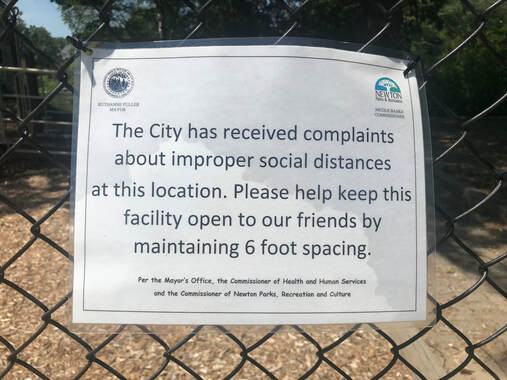|
With the pandemic continuing to affect our lives, it's understandable that families with high school students - especially seniors - have many questions about this year's college admission application process. So, without further ado, here's a new round of "Ask a College Counselor" questions and answers specific to the 2020-2021 application cycle!
Question: Applying to college during a pandemic - what's different this year? Should I/my high school senior consider deferring this whole process for a year? Answer: It’s definitely going to be a weird cycle for everyone involved! In terms of the greatest differences, I’d say that the biggest change is the massive amount of schools that are going test-optional for this cycle. Personally, I am absolutely *thrilled* by this development, since I have never been a fan of standardized testing, and I truly hope that many of these institutions KEEP this test-optional policy for future application cycles. That said, I know that some schools have already announced that their test-optional policy will only be in effect THIS CYCLE, which is one reason why it’s not a good idea to defer. Another pandemic change is the increased accessibility via the web of many more admission officers. Since they will not be traveling this fall per usual, they are very eager to engage with high school seniors via virtual info. sessions, and one-on-one Zoom meetings. I think that this is great, since students don’t have to necessarily compete for the attention of an admission officer in a cafeteria, and can engage directly with admission officers in a more meaningful way (which only helps in the application process). There’s also a new COVID essay to the Common App, but it’s not required (and, contrary to the usual practice of assuming that “if it’s optional, it’s actually required!”, this essay is truly optional). In my opinion, I don’t think it’s a good idea to defer applying this cycle for a whole host of reasons (for example, pandemic or not, I always advise my students who want to take a gap year to apply to schools while a senior in high school since the process is so much harder to do when the student is NOT in high school - one can always choose to defer after being accepted). Specific to THIS year, I think it will be a positive year for seniors, since admission officers will likely be extra lenient and flexible this cycle due to the pandemic. Since literally everyone in the world has been affected by the pandemic, the admission officers are going to HAVE to be more flexible and will HAVE to truly take holistic approaches to evaluating candidates (I have seen schools pay lip service to the idea of a holistic evaluation when they actually rely mostly on numbers at least for an initial screening of applicants). After all, Admission Committees will likely have NO testing to use, and they will need to reformulate their GPA calculations to account for the predominant pass/fail or “everyone gets an A” grading policy across the nation from this spring. Question: Since so many schools have gone test-optional for this cycle, should I/my student take the SAT/ACT if there's a chance to do so this fall? Answer: This is a decision that only the family can make, and it depends on everyone’s health situation. In my opinion, I would rather have my students apply test-optional and NOT take either exam, since I’m very concerned about the safety of testing centers (for ex. there were students in Oklahoma who took the ACT in July and tested positive for COVID after that). No test is worth risking a student’s health! However, that’s my viewpoint, and I completely respect and will support a family’s decision on whether or not a student will take a standardized exam. Question: It seemed like there were colleges and universities closing their doors even BEFORE the pandemic started. What about now? How can a family know that their high school senior is applying to a school that is financially stable? Answer: While the advent of COVID-19 has certainly increased the financial pressure felt by many higher education institutions, most schools with robust endowments will likely survive the current pandemic. Will there be more colleges and universities either closing forever or merging with wealthier institutions? Yes, I have no doubt that this will continue happening, since I see the pandemic as foregrounding and accelerating existing problems at these institutions. This is why I encourage families to check out the financial health "grades" for colleges and universities that Forbes Magazine publishes every year (while the 2020 edition is not out yet, the 2019 grades should still prove useful). I also find it helpful to find out a school's Moody Rating to get a sense of its financial health (note that you will need to set up a free account in order to access their information). Have a question about this year's college admission application process? Send it to me, Dr. Vitols, at [email protected]!
1 Comment
As the current pandemic continues to plague the U.S., COVID-19 is changing the college admission application process in multiple ways. Admissions officers won’t be traveling to high schools across the country to meet with students in person. Since the vast majority of rising seniors have not been able to take the SAT or the ACT this year, an unprecedented number of colleges and universities have gone test-optional (at least for this current admission cycle). And now, the Common Application has added a pandemic-specific question to its form.
What does this mean for students planning on applying to colleges and universities this fall? The Common Application decided to create a specific spot in its online form in the Additional Information section where students are given 250 words (maximum) to share any specific information they wish about how the pandemic has affected their lives. The prompt reads as follows: “Community disruptions such as COVID-19 and natural disasters can have deep and long-lasting impacts. If you need it, this space is yours to describe those impacts. Colleges care about the effects on your health and well-being, safety, family circumstances, future plans, and education, including access to reliable technology and quiet study spaces.
Since the Common Application announced this new “COVID question” in May, I’ve spent much time attending webinars and reading opinions on the pros and cons of students answering this prompt, and some best practices on how to approach this section. Most information that I’ve come across appears to fall into two camps: the “Yes! Always answer every optional question!” group and the “It Depends” side (obviously, the reality is that many people have varying opinions on this situation, and fall somewhere on a scale rather than embracing a binary). My thoughts are closer to the “It Depends” voices, since every applicant is unique with specific circumstances that should be individually assessed and addressed. That said, the best advice I’ve come across is from The College Essay Guy himself, Ethan Sawyer. His blog entry entitled “How to Write About Coronavirus/COVID-19 In Your College Essay & Application” details a useful step-by-step guide on how a student may approach this specific prompt. It’s helpful precisely because it begins by asking the high school senior a series of questions to determine whether or not the student should even use this section. Again, what is appropriate for one young adult may not make sense for her peer, and this is the case with EVERYTHING in the college admission process (it’s one of the reasons why parents often marvel at how one child ends up attending a large research university for their undergraduate education, while another sibling thrives in a small liberal arts setting). Next, if the student has determined that answering this prompt is appropriate for her, then Sawyer provides several options and ideas for how a senior may formulate a response. From my perspective, I strongly encourage students who choose to write about their COVID-19 experience to use the specific 250-word Coronavirus section to do so in a clear and straightforward manner, instead of writing a full essay about it in either the “Additional Information” section (one of the few truly “optional” spaces on any common application) or the main 650-word personal statement area. Each student is so much more than how he/she/they have responded to the pandemic, so save the other spaces in the Common Application for showcasing the student’s individuality and uniqueness. Nevertheless, if you feel strongly that a student must use every possible opportunity to share information about him/her/themselves (including the new COVID-19 essay space), then Brad Schiller, CEO of Prompt (a company that focuses on helping students become better writers and provides extensive college essay writing support), offers helpful advice. According to Schiller, students should use this section to prove that they will be successful in college and beyond by demonstrating 5 qualities: drive/grit, intellectual curiosity, taking initiative, contributing to a community, and a diversity of experiences. He recommends taking one of two approaches: writing an essay about personal circumstances and how students met their new challenges head-on (i.e., experienced hardships and what they did to improve their situation), OR writing an essay about one’s personal growth (i.e., how did the pandemic spark a new growth in intellectual curiosity, for example). For all COVID essay answers, Schiller reminds students to explicitly demonstrate how they used their pandemic time and to share how they are engaging with or perceiving themselves or the world differently. The bottom line? Just like with everything in a college admission application process, it all depends on the individual student. There is no magic bullet or secret formula to crafting a great application. Students and families should discuss whether or not responding to the COVID essay prompt is the right choice for them, and then trust that decision. And don’t be afraid to reach out for advice from your school counselors, admission officers, or independent educational consultants! Just like you are not alone in the experience of this pandemic, you’re not alone in your journey to college. |
AuthorMaruta Z. Vitols is an independent educational consultant in the metro-Boston area. When not helping students achieve their dreams, she enjoys hanging out with her dog, exploring new places with her husband, and doing yoga. Archives
April 2023
Categories |



 RSS Feed
RSS Feed